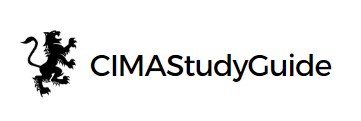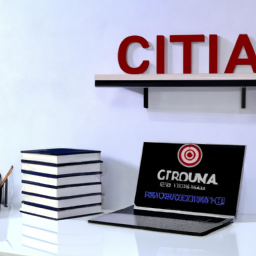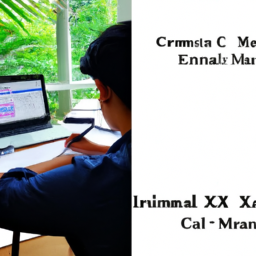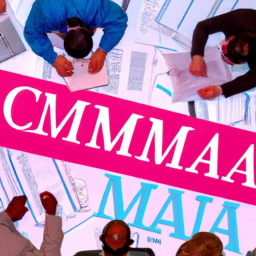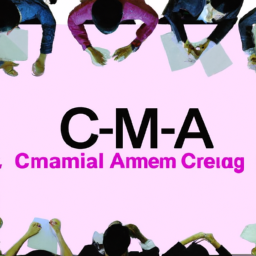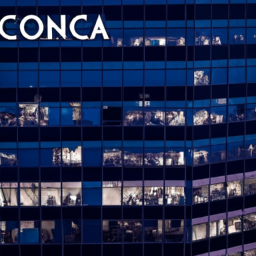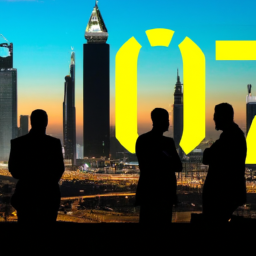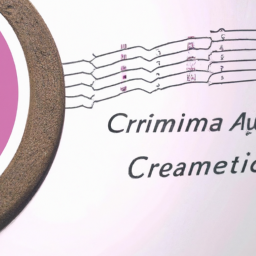Are you at a crossroads in your career, unsure of which path to take for professional growth? Look no further, as we delve into the world of CIMA Certification and MBA programs, and help you determine which one is right for you.
Imagine yourself standing at a fork in the road, one route leading to the prestigious CIMA Certification, and the other to an MBA degree. Both options offer unique benefits and opportunities, but how do you decide which path to follow?
In this article, we will explore the similarities and differences between CIMA Certification and an MBA, helping you make an informed decision based on your personal preferences and career goals.
We will examine the curriculum, focus, career opportunities, time and cost considerations, and much more.
So, whether you aspire to climb the corporate ladder or specialize in management accounting, join us as we navigate through the intricacies of CIMA Certification and MBA programs, and discover which one is the perfect fit for you.
The road to success awaits, and we are here to guide you every step of the way.
Key Takeaways
- CIMA Certification offers a comprehensive understanding of financial management, risk analysis, and strategic decision-making, while an MBA program provides a broader education in various business disciplines.
- CIMA Certification is more specialized in finance and accounting, while an MBA program offers a well-rounded education in finance, marketing, operations, and strategy.
- CIMA Certification leads to career opportunities as a financial analyst, management accountant, or finance manager, whereas an MBA program provides a wider range of career opportunities in finance and business sectors.
- CIMA Certification takes around three years to complete and is more affordable compared to an MBA degree, which requires a larger time commitment and can be quite expensive.
Understanding CIMA Certification
So, you’re thinking about diving into the world of finance and wondering if CIMA certification might be the right fit for you?
Well, let’s explore the benefits of CIMA certification and the career opportunities it can open up for you.
CIMA certification is highly regarded in the finance industry and provides you with a comprehensive understanding of financial management, risk analysis, and strategic decision-making.
With CIMA certification, you can enhance your skills in budgeting, forecasting, and cost control, making you a valuable asset to any organization.
Moreover, CIMA offers a global network of professionals, allowing you to connect with like-minded individuals and expand your career opportunities worldwide.
So, now that you have a glimpse of the advantages of CIMA certification, let’s delve into exploring the MBA degree.
Exploring the MBA Degree
So, you’re interested in exploring the MBA degree? Well, let me give you a quick overview.
An MBA degree, or Master of Business Administration, is a graduate-level program that provides a comprehensive understanding of various business disciplines, such as finance, marketing, and management.
Not only does it equip you with the necessary knowledge and skills to excel in the business world, but it also opens up a world of opportunities in finance and other business fields.
Overview of an MBA degree
Comparing an MBA degree to a treasure chest, it’s a valuable investment that opens doors to new opportunities and enhances one’s business acumen.
The MBA curriculum is carefully designed to provide a well-rounded education in various aspects of business, including finance, marketing, operations, and strategy. This comprehensive knowledge equips graduates with the skills necessary to navigate the complex world of business and make informed decisions.
Additionally, an MBA degree offers excellent career prospects, with graduates often securing leadership positions in top companies or starting their own successful ventures. The degree also provides a strong network of professionals and alumni, which can be invaluable for future collaborations and opportunities.
With the benefits of an MBA degree in finance and business fields, you can confidently take the next step into exploring the advantages it brings.
Benefits of an MBA degree in finance and business fields
One of the key advantages of an MBA degree in finance and business fields is that it equips graduates with the skills and knowledge necessary to excel in leadership positions and make strategic decisions.
With an MBA in hand, you can gain a competitive edge in the job market and have a wider range of career opportunities in finance and business sectors.
The comprehensive curriculum of an MBA program covers various aspects of finance, accounting, marketing, operations, and management, ensuring that you develop a well-rounded skill set.
Additionally, an MBA degree provides you with the opportunity to network with industry professionals and build valuable connections that can enhance your job prospects.
By obtaining an MBA, you position yourself for success in the field of finance and business.
Transitioning into the next section, let’s now compare the curriculum and focus of a CIMA certification and an MBA degree.
Comparing Curriculum and Focus
While on the CIMA certification path, you’ll dive deep into the world of financial management, navigating through the intricacies of budgeting and forecasting like a seasoned sailor on a stormy sea. The curriculum of the CIMA certification program is specifically designed to equip you with the skills and knowledge needed to excel in the finance industry. The focus of the program is heavily centered around financial management, cost accounting, and strategic management accounting. This ensures that you develop a strong foundation in these key areas, which are highly valued by employers in the finance and business fields.
To give you a better understanding, let’s compare the curriculum of CIMA certification with that of an MBA program. While an MBA covers a broad range of business topics, the CIMA certification program hones in on the specific skills needed for financial management roles. The curriculum is more focused and specialized, allowing you to gain in-depth knowledge and expertise in finance and accounting.
Here’s a comparison table to highlight the differences in curriculum and industry focus between CIMA certification and an MBA program:
| Aspect | CIMA Certification | MBA |
|---|---|---|
| Curriculum | Focused on finance and accounting | Broad range of business topics |
| Industry Focus | Finance and business fields | Various industries |
By completing the CIMA certification, you’ll be equipped with the necessary skills and knowledge to excel in finance and business roles. This sets you up for a wide range of career opportunities and advancement in the industry.
Career Opportunities and Advancement
As you progress through the CIMA certification program, you’ll discover a multitude of career opportunities and avenues for advancement in the finance and business fields. The CIMA certification equips you with the skills and knowledge necessary to excel in various roles, such as financial analyst, management accountant, or finance manager. These positions offer competitive salary potential and provide you with the opportunity to work in prestigious organizations across different industries.
With the CIMA qualification, you can also explore international career opportunities and work in different countries around the world. Additionally, the CIMA certification opens doors to senior management positions, allowing you to take on leadership roles and influence strategic decision-making within organizations. Overall, the CIMA certification offers a promising career path with excellent growth potential.
Moving on to time and cost considerations, it’s important to evaluate these factors before making a decision.
Time and Cost Considerations
When considering the time commitment for CIMA certification, you should be prepared to dedicate significant hours to studying and preparing for the exams. The CIMA qualification typically takes around three years to complete, but this can vary depending on your individual circumstances and study pace.
On the other hand, pursuing an MBA degree will require a larger time commitment, generally ranging from one to two years of full-time study or part-time study over a longer period.
As for the cost, CIMA certification can be more affordable compared to an MBA degree, with exam fees and study materials costing a few thousand dollars. In contrast, an MBA degree can be quite expensive, with tuition fees ranging from tens of thousands to over a hundred thousand dollars, depending on the program and location.
Time commitment for CIMA certification
The time commitment for obtaining a CIMA certification is a crucial factor to consider when deciding between a CIMA certification and an MBA.
The flexibility of the CIMA certification allows you to study at your own pace, fitting it around your existing work and personal commitments. The exam structure of CIMA is divided into four levels, each with a set number of exams that you need to pass. This allows you to break down your study time into manageable chunks, focusing on one level at a time.
Additionally, the CIMA certification offers computer-based exams, giving you the flexibility to schedule your exams whenever it suits you best. With a CIMA certification, you can complete the program in as little as 18 months or take longer if needed.
Transitioning into the subsequent section about the time commitment for an MBA degree, it’s important to consider the differences in duration and structure.
Time commitment for an MBA degree
Earning an MBA degree requires a significant investment of time and dedication. The time commitment for an MBA can vary depending on the program and the individual’s schedule.
Traditional full-time MBA programs typically require two years of full-time study, while part-time programs can take three to four years to complete. However, with the increasing popularity of online programs, flexibility has become a key advantage for those pursuing an MBA. Online MBA programs allow students to complete coursework at their own pace and often offer the option to work while studying. This flexibility is particularly beneficial for working professionals who may need to balance their studies with their career.
Moving on to the next section about the cost of CIMA certification, it is important to consider the financial aspect as well.
Cost of CIMA certification
Now that you have an understanding of the time commitment required for an MBA degree, let’s delve into the financial implications of obtaining a CIMA certification.
It’s important to consider the cost of the CIMA certification when deciding which path is right for you. The CIMA certification cost can vary depending on several factors, including the country you’re in and the study materials you choose. However, on average, the cost of obtaining a CIMA certification is significantly lower than that of an MBA degree. This makes it a more cost-effective option for individuals looking to enhance their financial expertise and advance their careers in the field of management accounting.
However, it’s important to keep in mind that the cost is just one aspect to consider. Transitioning to the subsequent section, let’s now explore the cost of an MBA degree.
Cost of an MBA degree
Considering the financial investment required, obtaining an MBA degree can be like taking a leap into a deep ocean of expenses. The cost of an MBA degree can vary greatly depending on the institution and program you choose. On average, the tuition fees for a two-year full-time MBA program can range from $50,000 to over $100,000.
However, the expenses don’t stop there. Additional costs such as textbooks, living expenses, and networking events can quickly add up. Despite the high cost, many argue that an MBA degree offers a significant return on investment. Graduates often see increased earning potential and improved career prospects.
It is important to carefully consider the cost comparison between CIMA certification and an MBA degree, as well as the potential return on investment, when making your decision.
Moving on to personal preferences and goals, it is crucial to evaluate which option aligns best with your specific aspirations and ambitions.
Personal Preferences and Goals
When it comes to deciding between a CIMA certification and an MBA, it’s important to take into account your personal preferences and goals.
Your personal preferences play a crucial role in determining which path is right for you. Some individuals prefer the structured curriculum of an MBA program, while others thrive in a more flexible and self-paced environment offered by a CIMA certification.
Additionally, your career goals should be considered. If you aspire to hold high-level executive positions in a wide range of industries, an MBA may provide a broader skill set and network. On the other hand, if you have a specific interest in finance and accounting and aim to specialize in that field, a CIMA certification may be the better choice.
Ultimately, understanding your personal preferences and aligning them with your career goals will help you make an informed decision.
Frequently Asked Questions
What are the admission requirements for CIMA Certification?
To pursue CIMA certification while working full time, you must meet the admission requirements. These typically include a bachelor’s degree or equivalent, regardless of the field of study. Additionally, you need to have at least two years of relevant work experience.
CIMA also requires you to pass their exams, which consist of multiple levels. It’s important to note that the admission requirements may vary slightly depending on your location and the specific CIMA program you choose.
Can I pursue CIMA Certification while working full-time?
Yes, you can definitely pursue CIMA certification while working full-time. Combining CIMA certification with an MBA can provide numerous benefits. By pursuing CIMA certification while working, you can gain practical experience and apply the knowledge you acquire directly to your job. This can enhance your skill set, increase your job prospects, and improve your earning potential. Additionally, employers often value professionals who are dedicated to continuing their education while managing their work responsibilities.
How long does it typically take to complete an MBA program?
The average duration of MBA programs globally is typically around 1-2 years, depending on the program and whether it is full-time or part-time.
Accelerated MBA programs offer a shorter timeframe, usually around 9-12 months, allowing you to earn your degree more quickly. While accelerated programs can save you time, they can also be more intense and require a significant commitment.
It’s important to consider your personal circumstances and goals when deciding which option is right for you.
Are there any specific industries or sectors where CIMA Certification is particularly valued?
In the job market, CIMA Certification is particularly valued in industries and sectors that require strong financial management and strategic decision-making skills. This certification is highly regarded in fields such as finance, accounting, consulting, and manufacturing.
Employers value the expertise and specialized knowledge that CIMA certified professionals bring to their organizations. With CIMA Certification, you can position yourself as a valuable asset in these industries, opening up opportunities for career growth and advancement.
Can I transfer credits from an MBA program towards CIMA Certification?
When considering credit transfer for your part-time pursuit, it’s important to note that the ability to transfer credits from an MBA program towards CIMA certification depends on the specific program and institution you’re enrolled in.
Some MBA programs may have agreements in place with CIMA that allow for credit transfer, while others may not.
It’s advisable to reach out to both the MBA program and CIMA for more information on their credit transfer policies and procedures.
Conclusion
In conclusion, both CIMA certification and an MBA degree offer unique benefits and opportunities for career growth.
While CIMA certification provides a specialized focus on management accounting and financial strategy, an MBA degree offers a broader understanding of business management.
The decision between the two ultimately depends on your personal preferences, career goals, and financial situation.
So, which path will you choose to enhance your skills and advance your career?
